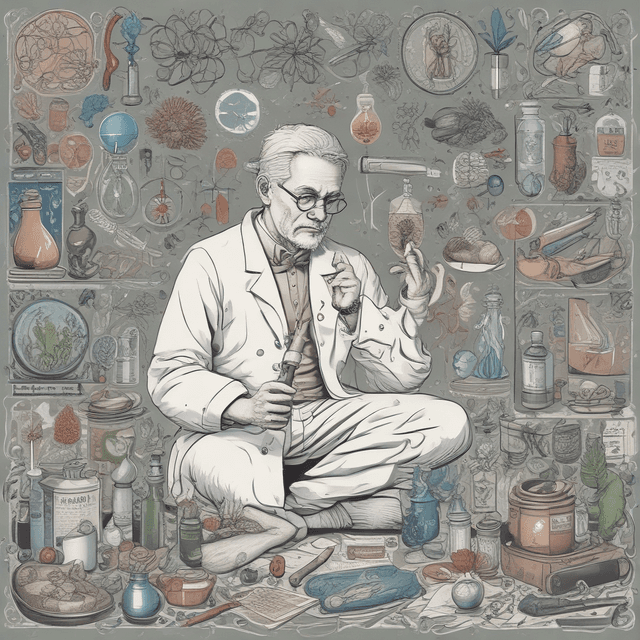
| Key focus areas | Holistic medicine • Vitalism • Alternative biology |
| Divergence from our reality | Creationist and vitalist views remained influential, delaying major breakthroughs in modern life sciences like genetics, evolution, and molecular biology. |
| Emergence of modern life science fields | Many never developed in this timeline due to the delayed progress in core disciplines. |
| Scientific classification and understanding | More limited compared to our world, with a greater emphasis on holistic, spiritual, and alternative approaches. |
The life sciences, encompassing disciplines from biology and medicine to ecology and evolutionary theory, have followed a markedly different course of development in this timeline compared to our own. Whereas in our reality the scientific consensus gradually shifted towards a materialist, mechanistic understanding of living organisms and natural systems, here a more vitalist, holistic worldview has persisted and shaped the trajectory of these fields.
The foundations of modern life sciences, such as taxonomy, anatomy, and natural history, emerged in Europe during the 17th and 18th centuries. However, the prevailing view remained one of creationism, with most scholars subscribing to the idea that living beings were the products of divine design rather than natural processes.
While thinkers like Jean-Baptiste Lamarck and Erasmus Darwin proposed early evolutionary theories, the seminal work of Charles Darwin and the theory of evolution by natural selection never gained widespread acceptance in this timeline. Creationist and intelligent design perspectives remained dominant in academia, limiting the development of evolutionary biology, paleontology, and related fields.
In the absence of a robust evolutionary framework, the life sciences gravitated towards more holistic, vitalist, and spiritually-oriented approaches. Influences from Hinduism, Hermeticism, and other non-Western philosophical traditions became increasingly prominent.
Pioneering figures like Paracelsus, Samuel Hahnemann, and Rudolf Steiner developed influential schools of alternative medicine and naturopathy that emphasized the interconnectedness of mind, body, and spirit. These approaches, emphasizing concepts like vital force, chakras, and homeopathy, became integrated into mainstream medical and biological thought to a much greater degree than in our timeline.
The lack of a Darwinian evolutionary framework delayed or prevented key breakthroughs in other areas of the life sciences. The discoveries of cells, DNA, genetics, and molecular biology occurred decades later than in our world, if they were made at all. Biotechnology, genetic engineering, and the Human Genome Project never fully materialized.
Similarly, the scientific study of ecology, ecosystems, and the biosphere lagged far behind our timeline. The urgency to understand and protect the natural world was diminished without the insights provided by evolutionary and systems-level thinking.
To this day, debates continue to rage within the life sciences community over the origins of life, the nature of consciousness, and the validity of alternative medical practices. Creationist and vitalist perspectives remain influential, with regular clashes between these camps and those advocating a more mechanistic, materialist worldview.
Funding and research in cutting-edge fields like epigenetics, systems biology, and synthetic biology is significantly constrained compared to our reality. The life sciences in this timeline have progressed along a markedly different trajectory, with profound implications for our understanding of the natural world and our place within it.